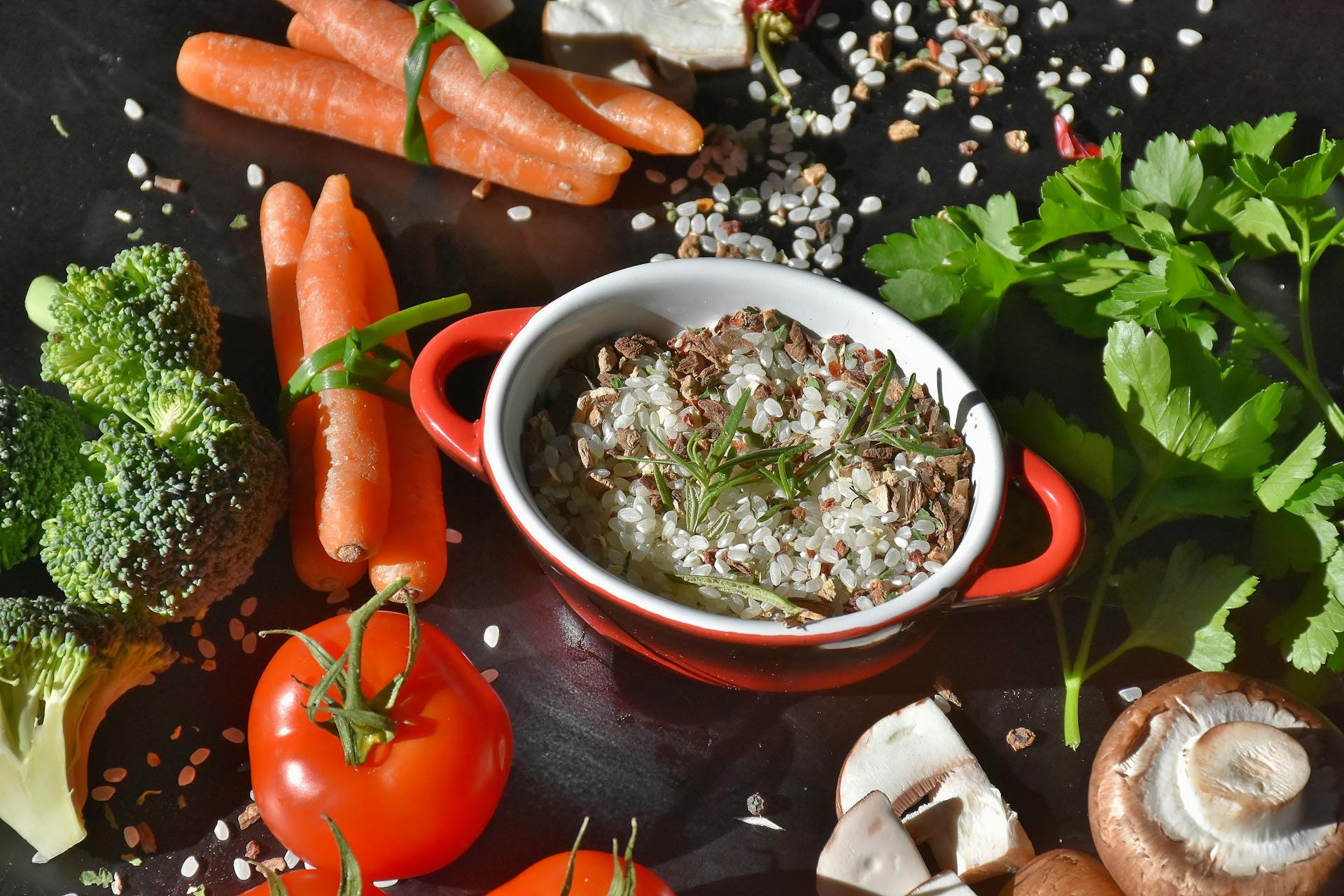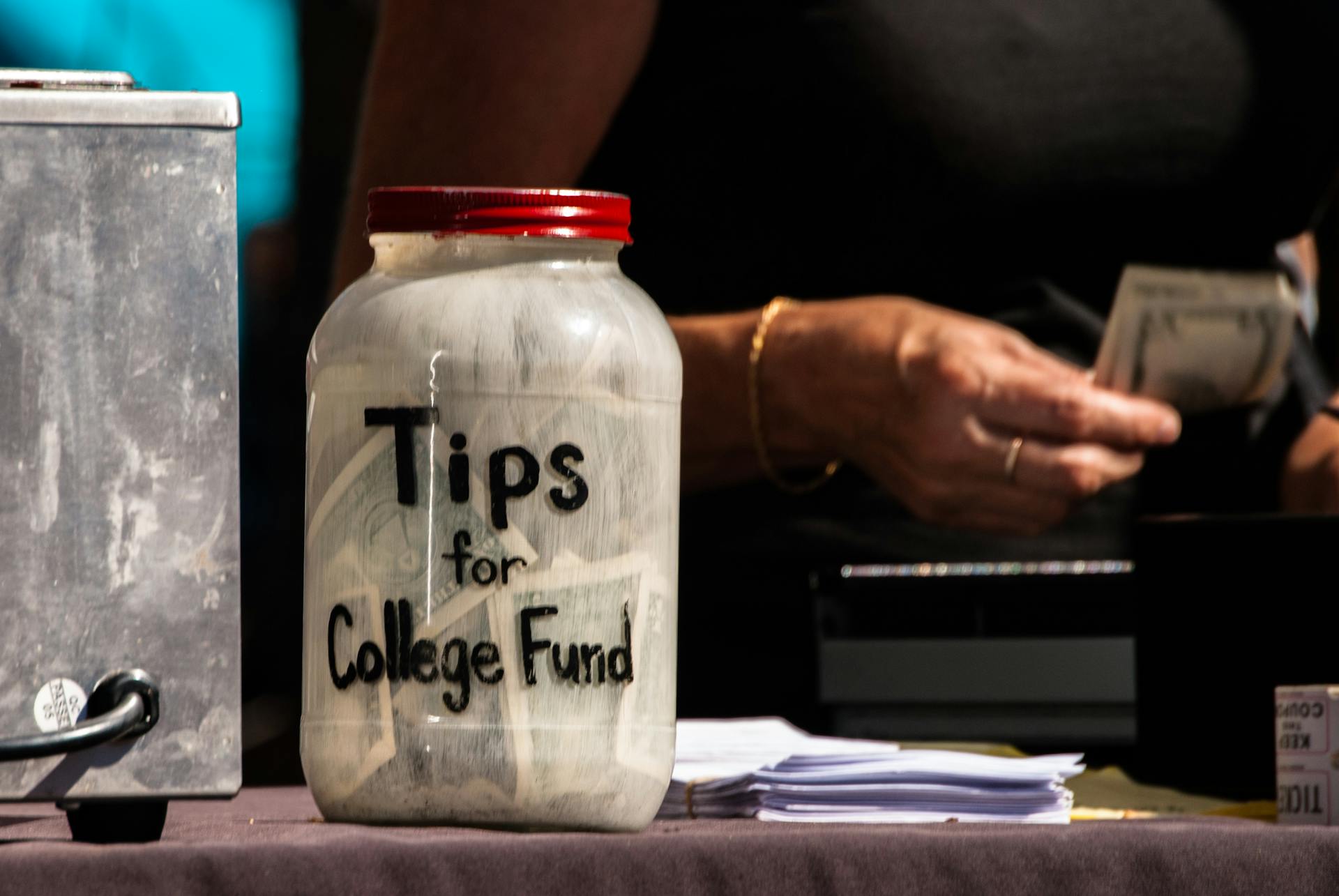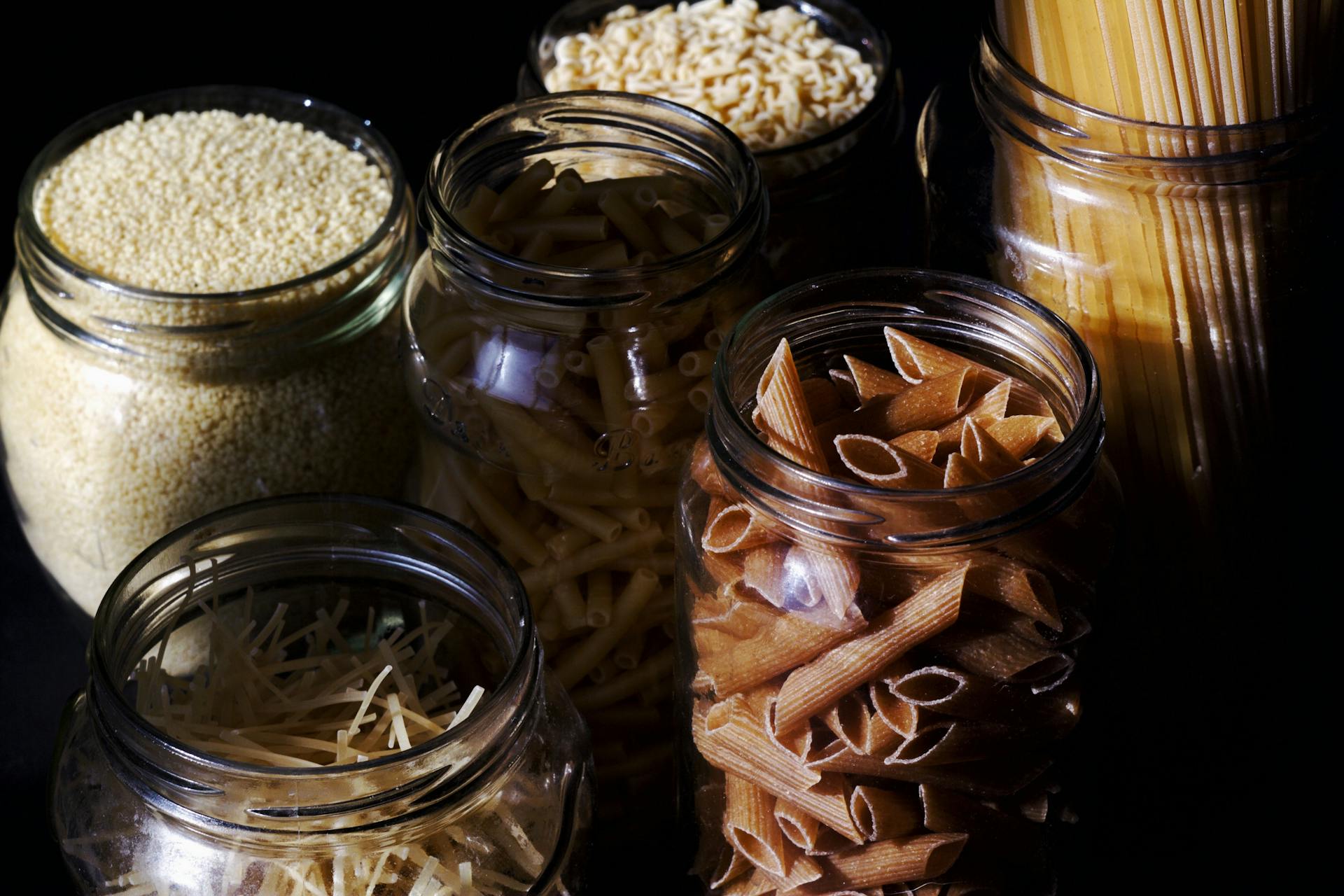
Holy Saturday, otherwise known as the "Sabbath of Sabbaths," is considered a day of solemnity for Roman Catholics. Traditionally, this has been understood to mean that Catholics are not supposed to eat any kind of meat on that day. However, with the changes in liturgical practices over the decades and centuries, the meaning of what is considered "meat" and how it applies to Holy Saturday has shifted drastically.
While previously poultry such as chicken or duck were considered "meat," some contemporary theologians now understand it only to refer to red meat (beef, pork, etc.). This would mean that one may partake in poultry if they choose during Holy Saturday. Furthermore, fish is technically thought by most theologians not to be meat at all; thus leading to an increasing allowance of eating seafood on Holy Saturday so long as no other type of red meat is also consumed.
Ultimately though, it's important for those struggling with a decision about what (if any) food they should consume on Holy Saturday - particularly those who live within communities where there can be a sense of guilt regarding breaking away from traditions which have been followed by their families year after year -to come prepared and seek out advice from your spiritual authority or guide ahead time so you feel comfortable following what resonates best with your conscience when deciding whether you should abstain from animal-based foods or not during this holy day within Catholicism.
Can Catholics eat dairy on Holy Saturday?
Yes, Catholics are able to eat dairy on Holy Saturday. Holy Saturday is the last day of Lent and a significant part of the Catholic liturgical calendar. Although traditionally marked as a fast day, abstaining from meat and dairy products was style never required on this holy day though it was encouraged. On this particular day however, eating only fish was mandatory for all Catholics in order to deny any physical pleasures in recognition of Christ’s death on the cross.
In more recent times however, many Catholics celebrate Holy Saturday by having milk or eggs for meals as a way to remember Jesus's resurrection and new life — both symbols traditionally associated with symbolism surrounding Easter Sunday celebrations. So whether you choose to forego milk products or not, it’s important to remember that the underlying spiritual premise behind all Catholic religious practices during these special days are one of reverence, prayer and celebration — not deprivation!
Can Catholics drink alcohol on Holy Saturday?
Holy Saturday is a day of great significance in the Catholic faith and many Catholics choose to observe holy days of obligation with prayer and fasting, forgoing certain foods or beverages. But can Catholics drink alcohol on Holy Saturday?
The Catholic Church does not forbid alcohol consumption outright. However, as this is a very solemn and spiritual time as we commemorate Jesus’s burial in preparation for his resurrection on Easter Sunday, so it is suggested that consuming alcoholic beverages be limited or avoided altogether during Holy Saturday.
When consuming alcohol during Holy Week—and especially on Holy Saturday—it’s important that any drinking be done responsibly, respectfully and in moderation. An excessive amount could distract from the spiritual aspects of the day or potentially become an occasion of sin. Some churchgoers abstain from drinking during Lenten season at all times while others simply reduce their intake; it ultimately comes down to individual discretion and consideration for one’s own personal circumstances.
If someone chooses to drink during Holy Week—such as on Holy Saturday—it would be considered more noble to offer those wines or beers up in gratitude for the sacrifice Jesus made rather than drinking out of self-indulgence or pleasure alone. Allowing your thoughts remain focused primarily upon Jesus' death, burial and resurrection are important when making any decisions related to eating or drinking around these time frames.
In summary, drinking alcohol is not forbidden but some caution should be taken if considering doing so during this special time in observance of what Christ has done for us - his ultimate act of love!
Recommended read: 5 Week
Can Catholics eat fish on Holy Saturday?
Yes, Catholics can eat fish on Holy Saturday. This is because fasting is no longer required on the day preceding Easter Sunday and many Catholics consider fish to be an appropriate meal for the evening before Easter.
The practice of not eating meat on holy days dates back centuries, to when Christians recognized several days during the year as devoted to fasting and abstinence from all types of food, including meat. Since then, as understanding of Biblical passages grew within Catholicism and other Christian denominations, it was decided that Christians could still observe piety by abstaining from some foods during periods chosen out for special celebration or observance. Thus began the tradition of not eating meat (except for fish) on Holy Saturday.
Although fasting may have been part of regular pre-Easter practice in past centuries, current traditions indicate that most Catholics now see a meal with fish as a fine way to both celebrate Holy Saturday without straying far from religious customs. Many Catholic parishes encourage their congregations to come together – often after Mass – for a festive gathering featuring hot dishes such as baked salmon or grilled trout. Others choose simpler meals such as shrimp cocktail or tuna salad sandwiches prepared in honor of the day’s significance while still respecting its origins in faith traditions surrounding Lenten fasting and abstinence practices.
From fried catfish eaten by Southerners following Baptist services to elegant entrees served up in fine Catholic dining halls across America – whatever your tastes might be – there's no reason why you cannot enjoy celebrating Holy Saturday with an appropriate meal where everyone at your table can feel comfortable doing so!
What foods are permitted on Holy Saturday?
Holy Saturday is the day that falls between "Good Friday" and Easter Sunday. It's a time for reflection, meditation, and prayer for Christians around the world. For those observing this holy season, there are certain foods that are permitted as part of their diet to mark the occasion.
For many Christians, Holy Saturday is a time for light fasting in preparation for Easter meals the following day. While some may choose to abstain from all food or liquids, others prefer to indulge in lighter fare such as vegetables and fruits. Salads made with lettuces like romaine or kale make delicious options alongside roasted potatoes or steamed vegetables like carrots and green beans. Bowls of mixed nuts and dried fruit also provide healthy sources of energy without detracting from one’s spiritual contemplation on this sacred day.
Another popular choice on Holy Saturday is fish-based dishes such as grilled salmon fillets or poached tilapia accompanied by boiled new potatoes, broccoli florets, sweetcorn and peas tossed in olive oil with freshly squeezed lemon juice dressings or light vinaigrettes – simple yet wholesome dishes that don’t peel away from one’s mindfulness of this important weekend celebration. Non-alcoholic beverages like fruit juices (without added sugar) herbal teas can also be enjoyed throughout the day while setting aside any caffeinated drinks - instead opting to take breaks throughout your journey on walking meditations through nature when you require an additional boost!
By adhering to these dietary restrictions - consciously including nutrient dense wholefoods without departing too greatly from regular fasting practices taken at other times during Lent - observants of Holy Saturday can both maintain their physical wellbeing while honouring its spiritual significance at once!
Are Catholics allowed to eat meat on Good Friday?
Good Friday is one day of the liturgical year when Catholics are asked to abstain from eating meat. In most situations, abstaining from meat does not necessarily mean forgoing all sources of protein. According to Canon Law, abstinence laws do not include eggs, milk products or condiments made from animal fat such as lard and butter.
The Catholic Church encourages us to use this time to reflect on the life Jesus Christ led while fasting before his death on Good Friday. Eating fish is viewed as a way of honoring Christ since during his ministry he often ate fish in addition to nuts and grains. As a reminder of the traditional values Catholics believe in and practice, Catholics are encouraged by the church to abstain from eating any form of mammal or poultry on Good Friday instead dedicating their full attention towards understanding the sacrifices Jesus made for us on that day 2 000 years ago.
You may still see several iconic foods traditionally eaten during Lent such as shrimp scampi or seafood pasta dishes served at churches around Good Friday in some parts of Europe and South America where these types of dishes have been made popular by local tradition along with fasting guidelines set forth by Pope John Paul II in 1992 encouraging moderation over total deprivation during Lenten observance.
No matter where you live, however, we hope that wherever you find yourself observing Good Friday that it serves as a strong reminder why we fast in general - remembering Jesus' spirit even if our diets are not necessarily focused solely on abstinence from meat alone!
Worth a look: Fresh Meat Good
Are there any restrictions on foods consumed on Holy Saturday?
Most Christians traditionally observe Holy Saturday as a time of fasting and abstinence, so there are certain foods that are typically restricted for consumption. Most denominations will agree that the only food you should limit on Holy Saturday is meat, specifically red meat and poultry.
Although there can be some flexibility in terms of what constitutes a "meat," most traditions define it as anything that came from an animal such as beef, pork, chicken or lamb. This means that fish and shellfish aren’t typically restricted on Holy Saturday since they don’t come from land animals.
In terms of other foods like eggs, dairy products, fruits and vegetables—these are not typically restricted because they don’t come from animals and therefore can be safely consumed without compromising the spirit of the day. In addition to abstaining from meat, some churches also encourage people to keep their activity levels low during this time as well in order to have more quiet time for prayer and contemplation.
Ultimately all churches handle holy days slightly differently so it's best to check with your local house of worship for their specific guidelines regarding food restrictions on Holy Saturday—including any additional customs or rules beyond just abstaining from meat!
Readers also liked: Puppies Eat Dry Food
Featured Images: pexels.com


